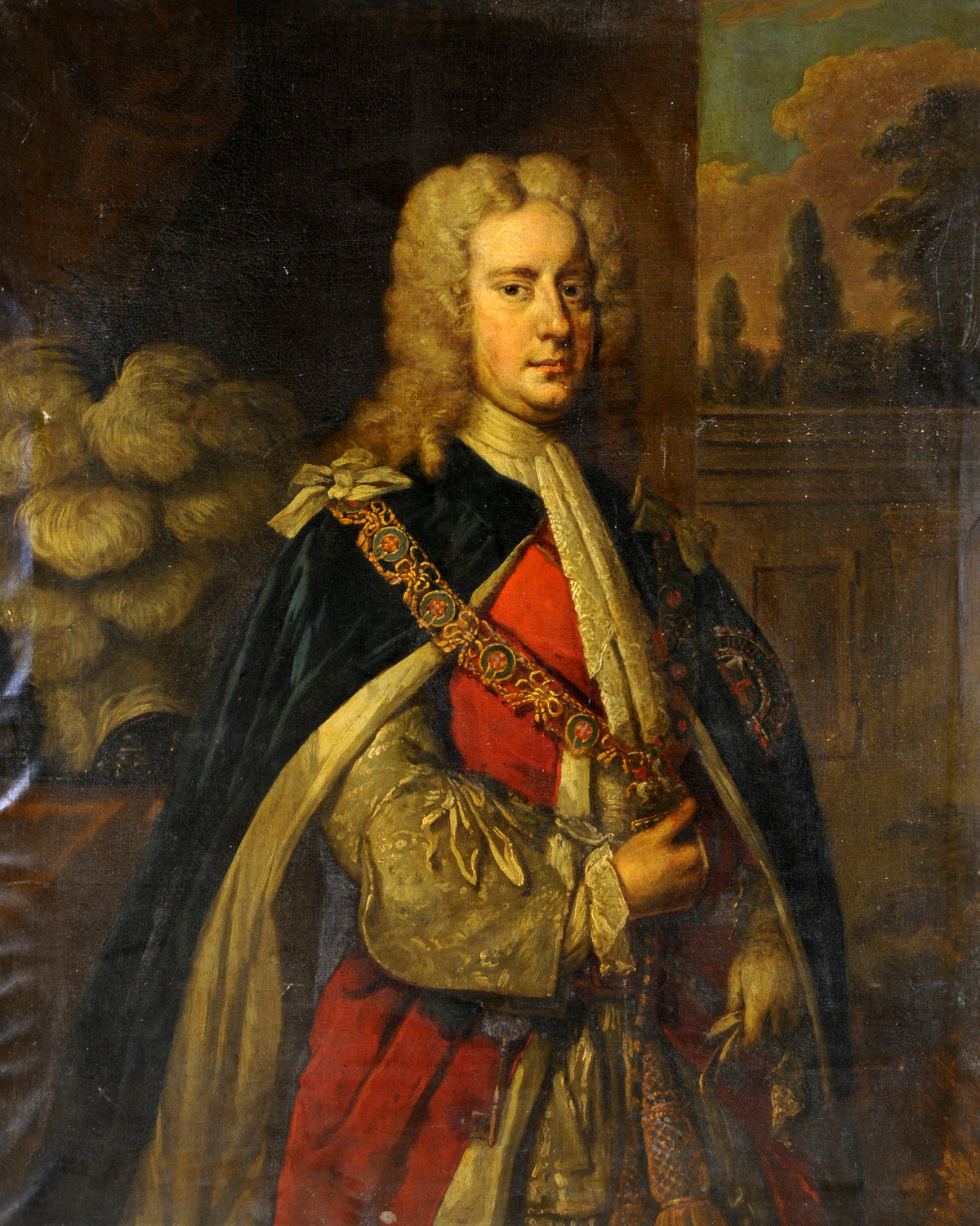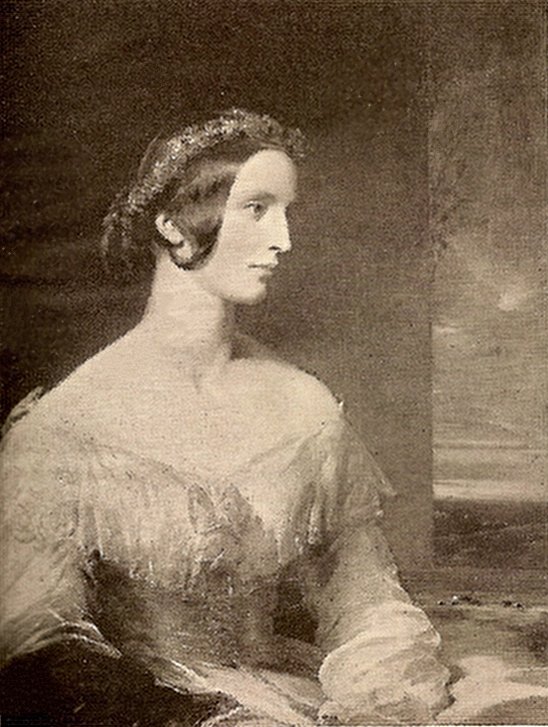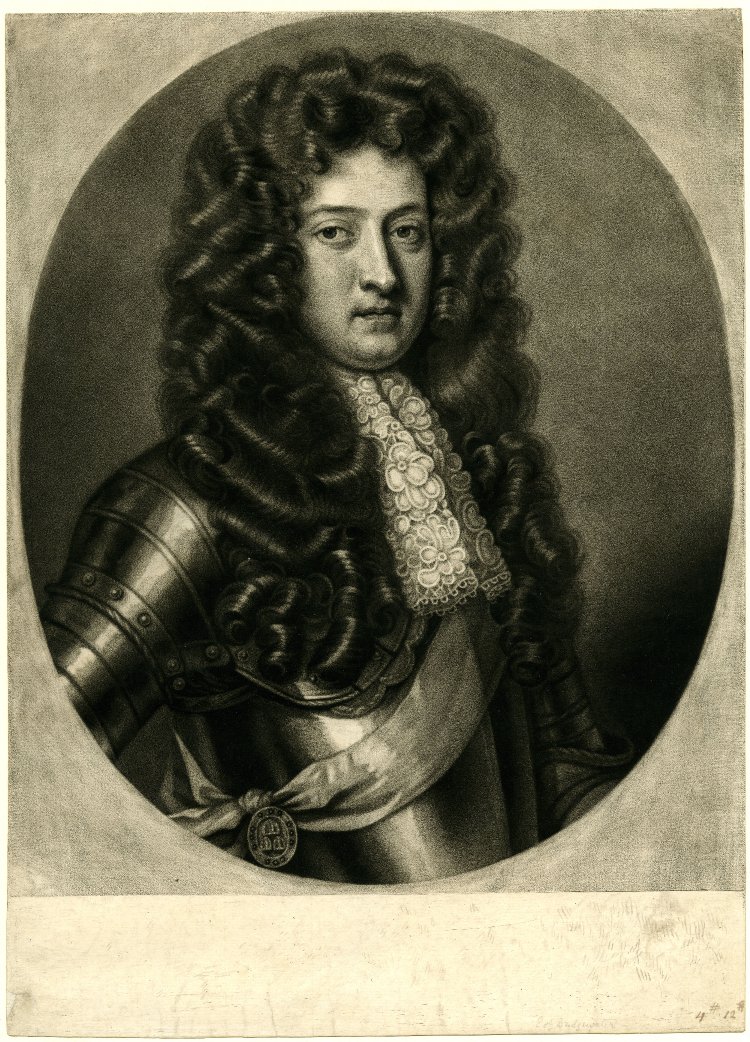|
George Villiers, 4th Earl Of Clarendon
George William Frederick Villiers, 4th Earl of Clarendon (12 January 180027 June 1870) was an English diplomat and statesman from the Villiers family. He served a succession of Whig and Liberal administrations. This included as Viceroy in famine-stricken Ireland and, on the first of three occasions as Foreign Secretary, as the United Kingdom's chief representative at the Congress of Paris which ended the Crimean War. Background and education Villiers was born in London to Hon. George Villiers and Hon. Theresa Parker, daughter of John Parker, 1st Baron Boringdon. He was the second born, but first surviving, of their 10 children. His father was the third son of Thomas Villiers, 1st Earl of Clarendon (himself the second son of William Villiers, 2nd Earl of Jersey). After the death of his father in 1827, George became heir to the earldom, succeeding his uncle Thomas Villiers, 2nd Earl of Clarendon (1753–1824), who died unmarried; and his uncle John Villiers, 3rd Earl of ... [...More Info...] [...Related Items...] OR: [Wikipedia] [Google] [Baidu] |
The Right Honourable
''The Right Honourable'' (abbreviation: The Rt Hon. or variations) is an honorific Style (form of address), style traditionally applied to certain persons and collective bodies in the United Kingdom, the former British Empire, and the Commonwealth of Nations. The term is predominantly used today as a style associated with the holding of certain senior public offices in the United Kingdom, Canada, New Zealand, and, to a lesser extent, Australia. ''Right'' in this context is an adverb meaning 'very' or 'fully'. Grammatically, ''The Right Honourable'' is an adjectival phrase which gives information about a person. As such, it is not considered correct to apply it in direct address, nor to use it on its own as a title in place of a name; but rather it is used in the Grammatical person, third person along with a name or noun to be modified. ''Right'' may be abbreviated to ''Rt'', and ''Honourable'' to ''Hon.'', or both. ''The'' is sometimes dropped in written abbreviated form, but is ... [...More Info...] [...Related Items...] OR: [Wikipedia] [Google] [Baidu] |
George Goschen, 1st Viscount Goschen
George Joachim Goschen, 1st Viscount Goschen (10 August 1831 – 7 February 1907), was a British statesman and businessman best remembered for being "forgotten" by Lord Randolph Churchill. He was initially a Liberal, then a Liberal Unionist before joining the Conservative Party in 1893. While Chancellor of the Exchequer, in 1888, he introduced the Goschen formula to allocate funding for Scotland and Ireland. Background, education and business career He was born in London, the son of Wilhelm Heinrich (William Henry) Goschen, who emigrated from Leipzig. His grandfather was the prominent German printer Georg Joachim Göschen. He was educated at Rugby under Tait, and at Oriel College, Oxford, where he took a first in Literae Humaniores and served as President of the Oxford Union. He entered his father's firm of " Frühling & Göschen", of Austin Friars, in 1853, and three years later became a director of the Bank of England. From 1874 to 1880, Goschen was Governor (Company c ... [...More Info...] [...Related Items...] OR: [Wikipedia] [Google] [Baidu] |
Villiers Family
Villiers ( ) is an Nobility, aristocratic family in the United Kingdom. Over time, various members of the Villiers family were made knights, baronets, and peers. Peerages held by the Villiers family include the dukedoms of Duke of Buckingham, Buckingham (1623–1687) and Duke of Cleveland, Cleveland (1670–1709), as well as the earldoms of Earl of Anglesey, Anglesey (1623–1661), Earl of Jersey, Jersey (since 1697), and Earl of Clarendon, Clarendon (since 1776). Perhaps the most prominent members of the family were those who received the two dukedoms: George Villiers, 1st Duke of Buckingham (1592–1628) rose to fame and influence as favourite of King James I of England, while Barbara Villiers, Duchess of Cleveland (1640–1709) became a Royal mistress, mistress of King Charles II of England, by whom she had five children. History Descent The Villiers family were settled at Brooksby, Leicestershire, from at least 1235. In the early 13th century, the tenant of Brooksby, Gilber ... [...More Info...] [...Related Items...] OR: [Wikipedia] [Google] [Baidu] |
Shield Of Arms Of George Villiers, 4th Earl Of Clarendon, KG, GCB, PC
A shield is a piece of personal armour held in the hand, which may or may not be strapped to the wrist or forearm. Shields are used to intercept specific attacks, whether from close-ranged weaponry like spears or long ranged projectiles such as arrows. They function as means of active blocks, as well as to provide passive protection by closing one or more lines of engagement during combat. Shields vary greatly in size and shape, ranging from large panels that protect the user's whole body to small models (such as the buckler) that were intended for hand-to-hand-combat use. Shields also vary a great deal in thickness; whereas some shields were made of relatively deep, absorbent, wooden planking to protect soldiers from the impact of spears and crossbow bolts, others were thinner and lighter and designed mainly for deflecting blade strikes (like the roromaraugi or qauata). Finally, shields vary greatly in shape, ranging in roundness to angularity, proportional length and width, s ... [...More Info...] [...Related Items...] OR: [Wikipedia] [Google] [Baidu] |
George Villiers (1759–1827)
The Hon. George Villiers (23 November 1759 – 21 March 1827) was a British courtier and politician from the Villiers family. The youngest son of the diplomat Lord Hyde (later Earl of Clarendon), he was an intimate of Princess Amelia and personal supporter of her father, George III. His favour within the Royal Family and his father's influence brought him a number of sinecures to support him. However, Villiers was more interested in the operation of the royal farms at Windsor Castle than in politics or the duties of his offices. When his bookkeeping as Paymaster of the Marines was carefully examined in 1810, Villiers' carelessness and the speculation of his clerk had left him in debt to the Crown by more than £250,000. This exposure touched off a public scandal; Villiers promptly surrendered all his property to the Crown and threw himself on the king's mercy. The misconduct of Joseph Hunt as Treasurer of the Ordnance to some extent obscured Villiers' own misconduct, and he w ... [...More Info...] [...Related Items...] OR: [Wikipedia] [Google] [Baidu] |
St John's College, Cambridge
St John's College, formally the College of St John the Evangelist in the University of Cambridge, is a Colleges of the University of Cambridge, constituent college of the University of Cambridge, founded by the House of Tudor, Tudor matriarch Lady Margaret Beaufort. In constitutional terms, the college is a charitable corporation established by a charter dated 9 April 1511. The aims of the college, as specified by its statutes, are the promotion of education, religion, learning and research. It is one of the largest Oxbridge colleges in terms of student numbers. For 2022, St John's was ranked 6th of 29 colleges in the Tompkins Table (the annual league table of Cambridge colleges) with over 35 per cent of its students earning British undergraduate degree classification#Degree classification, first-class honours. It is the second wealthiest college in Oxford and Cambridge, after its neighbour Trinity College, Cambridge. Members of the college include the winners of twelve Nobel Pr ... [...More Info...] [...Related Items...] OR: [Wikipedia] [Google] [Baidu] |
Liberal Party (UK)
The Liberal Party was one of the two Major party, major List of political parties in the United Kingdom, political parties in the United Kingdom, along with the Conservative Party (UK), Conservative Party, in the 19th and early 20th centuries. Beginning as an alliance of Whigs (British political party), Whigs, free trade–supporting Peelites, and reformist Radicals (UK), Radicals in the 1850s, by the end of the 19th century, it had formed four governments under William Ewart Gladstone. Despite being divided over the issue of Irish Home Rule, the party returned to government in 1905 and won a landslide victory in the 1906 United Kingdom general election, 1906 general election. Under Prime Minister of the United Kingdom, prime ministers Henry Campbell-Bannerman (1905–1908) and H. H. Asquith (1908–1916), the Liberal Party passed Liberal welfare reforms, reforms that created a basic welfare state. Although Asquith was the Leader of the Liberal Party (UK), party leader, its domin ... [...More Info...] [...Related Items...] OR: [Wikipedia] [Google] [Baidu] |
Richard Temple-Nugent-Brydges-Chandos-Grenville, 2nd Duke Of Buckingham And Chandos
Richard is a male given name. It originates, via Old French, from Old Frankish and is a compound of the words descending from Proto-Germanic language">Proto-Germanic ''*rīk-'' 'ruler, leader, king' and ''*hardu-'' 'strong, brave, hardy', and it therefore means 'strong in rule'. Nicknames include " Richie", " Dick", " Dickon", " Dickie", " Rich", " Rick", "Rico (name), Rico", " Ricky", and more. Richard is a common English (the name was introduced into England by the Normans), German and French male name. It's also used in many more languages, particularly Germanic, such as Norwegian, Danish, Swedish, Icelandic, and Dutch, as well as other languages including Irish, Scottish, Welsh and Finnish. Richard is cognate with variants of the name in other European languages, such as the Swedish "Rickard", the Portuguese and Spanish "Ricardo" and the Italian "Riccardo" (see comprehensive variant list below). People named Richard Multiple people with the same name * Richard Ander ... [...More Info...] [...Related Items...] OR: [Wikipedia] [Google] [Baidu] |
Lord Privy Seal
The Lord Privy Seal (or, more formally, the Lord Keeper of the Privy Seal) is the fifth of the Great Officers of State (United Kingdom), Great Officers of State in the United Kingdom, ranking beneath the Lord President of the Council and above the Lord Great Chamberlain. Originally, its holder was responsible for the monarch's Privy Seal of England, personal (privy) seal (as opposed to the Great Seal of the Realm, which is in the care of the lord chancellor) until the use of such a seal became obsolete. Though one of the oldest offices in European governments, it has no particular function today because the use of a privy seal has been obsolete for centuries; it may be regarded as a traditional sinecure, but today, the holder of the office is invariably given a seat in the Cabinet of the United Kingdom, and is sometimes referred to as a Minister without portfolio (United Kingdom), minister without portfolio. Since the premiership of Clement Attlee, the position of Lord Privy S ... [...More Info...] [...Related Items...] OR: [Wikipedia] [Google] [Baidu] |
Henry Labouchere, 1st Baron Taunton
Henry Labouchere, 1st Baron Taunton, PC (; 15 August 179813 July 1869) was a British Whig and Liberal Party politician of the mid-19th century. Background and education Labouchere was born in London into a prominent family, the son of Peter Cesar Labouchere of Hylands, a Dutch-born banker of French Huguenot ancestry who had settled in England, and his wife Dorothy Elizabeth, daughter of Sir Francis Baring. He was educated at Winchester College and Christ Church, Oxford, where he took his B.A. (1821) and his M.A. (1828). Political career In 1826, Labouchere became MP for St Michael, as a Whig. In 1830, he moved to the Taunton seat, which he held until 1859. In 1835 he was opposed by Benjamin Disraeli for the Taunton seat; Labouchere won by 452 votes to 282. He was first appointed to office by Lord Grey in 1832, serving as Civil Lord of the Admiralty . After beginning the second Melbourne ministry as Master of the Mint, Privy Counsellor, and Vice-President of the Board of ... [...More Info...] [...Related Items...] OR: [Wikipedia] [Google] [Baidu] |
James Broun-Ramsay, 1st Marquess Of Dalhousie
James Andrew Broun-Ramsay, 1st Marquess of Dalhousie (22 April 1812 – 19 December 1860), known as the Earl of Dalhousie between 1838 and 1849, was a Scottish statesman and colonial administrator in British India. He served as Governor-General of India from 1848 to 1856. He established the foundations of the colonial educational system in India by adding mass education in addition to elite higher education. He introduced passenger trains to the Rail transport in India#History, railways, the electric telegraph and uniform postage, which he described as the "three great engines of social improvement". He also founded the Central Public Works Department, Public Works Department in India. He stands out as the far-sighted Governor-General who consolidated East India Company rule in India, laid the foundations of its later administration, and by his sound policy enabled his successors to stem the tide of rebellion. His period of rule in India directly preceded the transformation ... [...More Info...] [...Related Items...] OR: [Wikipedia] [Google] [Baidu] |
President Of The Board Of Trade
The president of the Board of Trade is head of the Board of Trade. A committee of the His Majesty's Most Honourable Privy Council, Privy Council of the United Kingdom, it was first established as a temporary committee of inquiry in the 17th century that evolved gradually into a government department with diverse functions. The current holder of the post is Jonathan Reynolds, who is concurrently the Secretary of State for Business and Trade, secretary of state for business and trade. History The idea of a Board of Trade was first translated into action by Oliver Cromwell in 1655 when he appointed his son Richard Cromwell to head a body of Lords of the Privy Council of the United Kingdom, Privy Council, judges and merchants to consider measures to promote trade. Charles II of England, Charles II established a Council of Trade on 7 November 1660, followed by a Council of Foreign Plantations on 1 December that year. The two were united on 16 September 1672 as the Board of Trade and ... [...More Info...] [...Related Items...] OR: [Wikipedia] [Google] [Baidu] |







